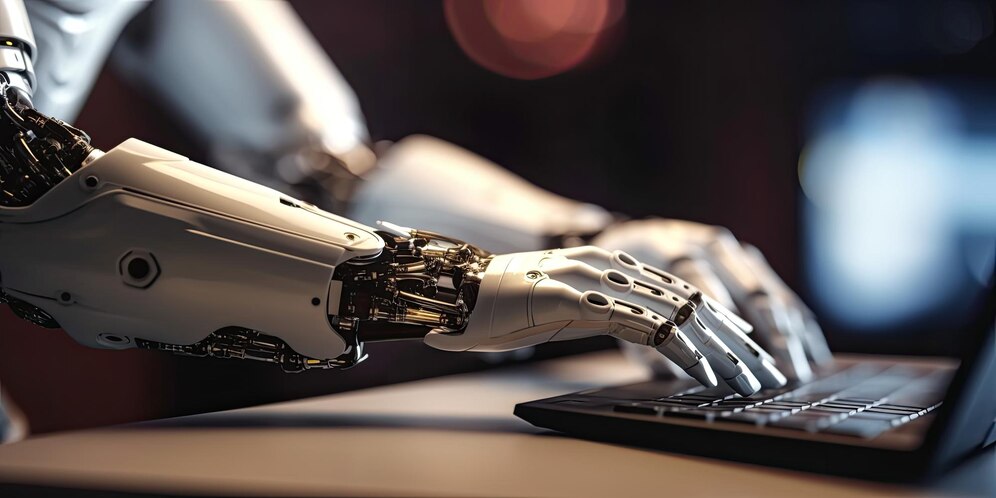In the realm of personal finance and self-improvement, Robert Kiyosaki’s “Rich Dad Poor Dad” has long been a cornerstone, offering valuable insights into financial literacy and wealth-building. However, as we march further into the digital age, another narrative is emerging—the rise of Artificial Intelligence (AI) and its impact on our lives, including finance. In this article, we’ll explore the lessons learned from “Rich Dad Poor Dad” stories and juxtapose them with the evolving narratives surrounding AI, delving into how these two realms intersect and what lessons we can derive from both.
Table of Content:
- Rich Dad Poor Dad Stories
- AI Stories
- Juxtaposting Rich Dad Poor Dad and AI Stories
- Financial Education
- Asset Allocation
- Risk Management
- Adaptability
- Ethical Considerations
- Conclusion
Rich Dad Poor Dad Stories:

“Rich Dad Poor Dad” revolves around Kiyosaki’s upbringing, contrasting the financial philosophies of his biological father (Poor Dad) with those of his friend’s father (Rich Dad). Through these anecdotes, Kiyosaki imparts invaluable lessons on wealth creation, such as the importance of financial education, investing, and entrepreneurship. Rich Dad emphasizes assets over liabilities, the power of passive income, and the necessity of taking calculated risks to achieve financial freedom.
AI Stories:

On the other hand, AI stories are a product of our rapidly advancing technological landscape. From automation in industries to algorithmic trading in finance, AI is reshaping the way we work, invest, and even perceive wealth. While AI promises efficiency and optimization, it also brings forth concerns about job displacement, algorithmic biases, and the widening gap between those who understand and leverage AI and those who do not.
Juxtaposing Rich Dad Poor Dad and AI Stories:
At first glance, the narratives of “Rich Dad Poor Dad” and AI stories may seem disparate, one rooted in personal finance and the other in technological innovation. However, upon closer examination, we find significant intersections between the two.
Financial Education:
- Both “Rich Dad Poor Dad” and AI stories underscore the importance of education, albeit in different contexts. While Kiyosaki emphasizes the need for financial literacy to navigate the world of wealth and investments, AI stories highlight the significance of understanding technology to adapt to the digital transformation sweeping across industries. In essence, both realms advocate for continuous learning and adaptation to thrive in a dynamic environment.
Asset Allocation:
- The concept of asset allocation is central to both narratives. In “Rich Dad Poor Dad,” Rich Dad advocates for investing in income-generating assets such as real estate and businesses, while minimizing liabilities. Similarly, in AI stories, individuals and businesses are encouraged to invest in AI technologies to enhance productivity and gain a competitive edge. Whether it’s acquiring AI-driven software for predictive analytics or deploying chatbots for customer service, strategic asset allocation plays a crucial role in maximizing returns and mitigating risks.
Risk Management:
- Another parallel between the two narratives is the notion of risk management. Rich Dad emphasizes the importance of taking calculated risks in investments, highlighting the potential rewards of venturing into entrepreneurship or real estate. Similarly, in the realm of AI, organizations must assess and manage the risks associated with adopting new technologies, such as data privacy concerns, cybersecurity threats, and ethical implications. By embracing risk management principles, individuals and businesses can navigate uncertainties and capitalize on opportunities while safeguarding their interests.
Adaptability:
- Both “Rich Dad Poor Dad” and AI stories underscore the importance of adaptability in an ever-changing landscape. In the face of technological disruptions and market fluctuations, individuals must be agile and open to embracing new strategies and technologies. Whether it’s learning new investment tactics to capitalize on emerging trends or upskilling in AI-related fields to remain relevant in the job market, adaptability is key to long-term success.
Ethical Considerations:
- Finally, both narratives raise ethical considerations that cannot be overlooked. In “Rich Dad Poor Dad,” Kiyosaki emphasizes the importance of integrity and ethics in financial dealings, urging readers to prioritize principles over profits. Similarly, in the realm of AI, ethical considerations surrounding data privacy, algorithmic biases, and AI-driven decision-making are hotly debated topics. As we harness the power of AI, it’s imperative to ensure that ethical guidelines are established and adhered to, preserving trust and integrity in our increasingly digitized world.
Conclusion:

In conclusion, while “Rich Dad Poor Dad” stories and AI stories may seemingly belong to different realms, they share common themes and lessons that are invaluable in navigating the complexities of modern life. By integrating the principles of financial literacy, adaptability, and ethical stewardship espoused in “Rich Dad Poor Dad” with the opportunities and challenges presented by AI, individuals and businesses can chart a course towards prosperity and sustainability in the digital age. As we continue to embrace technological advancements, let us not forget the timeless wisdom imparted by Kiyosaki’s anecdotes, reminding us that true wealth encompasses not only financial abundance but also integrity, resilience, and a commitment to lifelong learning.


